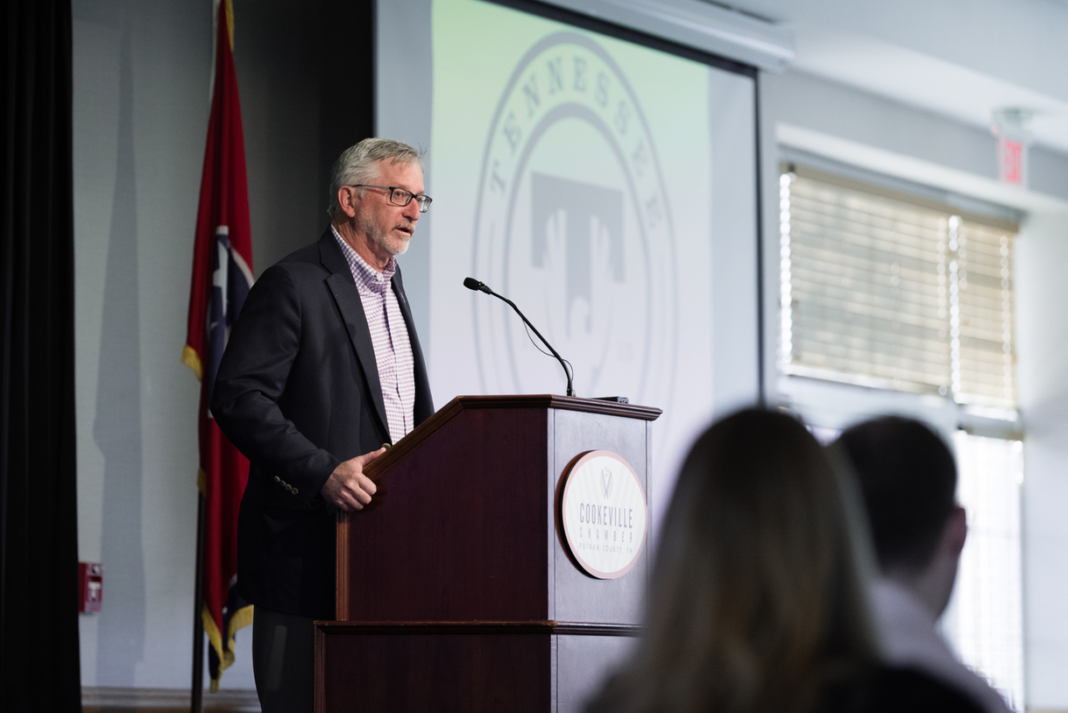
COOKEVILLE – In sharing Gov. Bill Lee’s vision and passion for the accelerated transformation of rural areas, Tennessee Tech announced today a Grand Challenge initiative: Rural Reimagined.
This initiative will focus on how the university will harness science, technology and innovation to transform rural living. Rural Reimagined will help leverage the unique assets of Tech while helping develop and support the success of rural areas throughout Tennessee.
“The challenges faced by rural communities are complex, but I am energized by the thought of what we can do when we work together as a university to face these challenges as partners with rural communities,” said Phil Oldham, president of Tennessee Tech.
“Rural Reimagined will help Tech engage every academic discipline, bringing expertise and collaboration to examine rural challenges in different areas,” Oldham said.
Tech serves more distressed counties than any other state university, and is centrally located to eight counties in need of expedited transformation and innovation.
“As a rural university situated centrally in one of the state’s most distressed geographic areas, this is a natural fit for Tech,” said Jeff Boles, chairperson of the Tech chemistry department. “Historically, Tech has played an important role in the education and prosperity of the Upper Cumberland region, so in this time when rural areas are becoming more and more distressed, why not take this dedication to the next level? Good practices learned through research and application can be replicated in essentially any rural area in the state or in the country.”
Boles is one of several faculty, students, staff and administrators on Tech’s strategic planning committee who have been working on this Grand Challenge. After months of collaboration, Rural Reimagined was created to examine certain rural challenges such as increasing availability of broadband; increasing access to affordable, quality childcare and healthcare; developing stainable food sources; promoting economic development and entrepreneurship; and, increasing educational attainment and technical job skills.
“Rural Reimagined creates actionable objectives that the university can rally around,” said Michael Aikens, director of Tech’s Center for Rural Innovation. “These objectives are highly interdisciplinary, promote collaboration, and is a call to action. These are not silo’d efforts, rather an opportunity to collaborate internally and externally. This initiative allows us to adopt a collaborative and innovative mindset to reimagine the landscape of rural regions.”
Tech has already been assisting rural areas with career readiness certification; a remote area medical clinic; a small business development center; a cybersecurity education, research and outreach center; a STEM mobile unit for K-12 student success; water quality research to monitor and protect natural resources; and archives of rural history.
“Every day I see the impact the university can have upon the communities in our region, whether this be helping businesses succeed, economic developers improve their community’s outlook, and providing students with academic and experiential learning opportunities and experiences to further their studies and to become career ready,” said Aikens. “It’s something everyone can be excited about and become involved. Not only can we be good stewards of our community, it is our intention that the Grand Challenge serve as a scalable model to address rural in any part of the world.”
For more information on Rural Reimagined, go to www.tntech.edu/grand-challenge.








